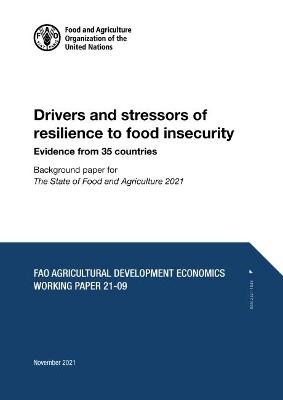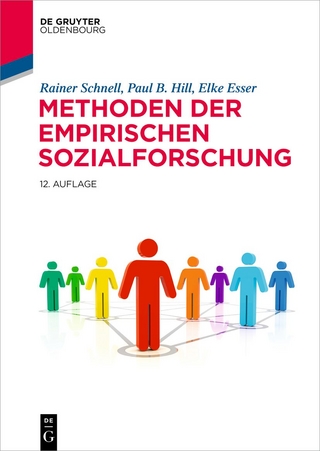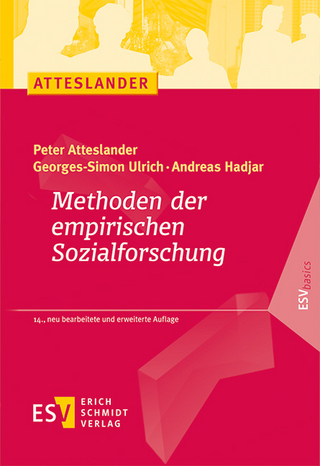
Drivers and stressors of resilience to food insecurity
evidence from 35 countries, background paper for 'The State of Food and Agriculture 2021'
Seiten
2022
Food & Agriculture Organization of the United Nations (FAO) (Verlag)
978-92-5-135227-4 (ISBN)
Food & Agriculture Organization of the United Nations (FAO) (Verlag)
978-92-5-135227-4 (ISBN)
This paper finds that diversification of income sources, education and access to agricultural inputs are the main drivers of households' resilience capacity. Reducing the food consumed, seeking extra jobs, selling assets, using credit and relying on social networks are the most adopted coping strategies.
Resilience is often associated with multivalued and multi-faceted strategies, programs, and projects. After approximately 15 years of empirical evidence in the literature, few research questions remain unexplored and unanswered, especially with the recent occurrence of a global pandemic. In this paper, we are assessing whether there are few and consistently relevant elements that determine resilience capacity as well as investigating which shocks are most dramatically reducing resilience. We also investigate which coping strategies are most frequently adopted in the presence of shocks. Our results show that diversification of income sources, education, access to land, livestock, and agricultural inputs, are the main drivers of households' resilience capacity. Moreover, the most prevailing shocks are found to be natural, health and livelihood-related shocks. In addition to this, we show that reducing the quantity and quality of food consumed, seeking an extra job, selling assets, taking credit, relying on relatives and social networks are the most adopted coping strategies. Finally, we found that coping strategies are able to mitigate the adverse effects of shocks on resilience capacity; however, they are not sufficient to offset their long-term negative consequences. Our conclusion is that adequate investments in resilience are conditional to a) engaging with activities that are broadly consistent across countries and b) fine-tuning the interventions based on context-specificity
Resilience is often associated with multivalued and multi-faceted strategies, programs, and projects. After approximately 15 years of empirical evidence in the literature, few research questions remain unexplored and unanswered, especially with the recent occurrence of a global pandemic. In this paper, we are assessing whether there are few and consistently relevant elements that determine resilience capacity as well as investigating which shocks are most dramatically reducing resilience. We also investigate which coping strategies are most frequently adopted in the presence of shocks. Our results show that diversification of income sources, education, access to land, livestock, and agricultural inputs, are the main drivers of households' resilience capacity. Moreover, the most prevailing shocks are found to be natural, health and livelihood-related shocks. In addition to this, we show that reducing the quantity and quality of food consumed, seeking an extra job, selling assets, taking credit, relying on relatives and social networks are the most adopted coping strategies. Finally, we found that coping strategies are able to mitigate the adverse effects of shocks on resilience capacity; however, they are not sufficient to offset their long-term negative consequences. Our conclusion is that adequate investments in resilience are conditional to a) engaging with activities that are broadly consistent across countries and b) fine-tuning the interventions based on context-specificity
| Erscheinungsdatum | 21.03.2022 |
|---|---|
| Reihe/Serie | FAO agricultural development economics working paper |
| Zusatzinfo | tables |
| Verlagsort | Rome |
| Sprache | englisch |
| Themenwelt | Sozialwissenschaften ► Soziologie ► Empirische Sozialforschung |
| Technik ► Lebensmitteltechnologie | |
| ISBN-10 | 92-5-135227-5 / 9251352275 |
| ISBN-13 | 978-92-5-135227-4 / 9789251352274 |
| Zustand | Neuware |
| Haben Sie eine Frage zum Produkt? |
Mehr entdecken
aus dem Bereich
aus dem Bereich
Buch | Hardcover (2023)
De Gruyter Oldenbourg (Verlag)
34,95 €
ein Arbeitsbuch
Buch | Softcover (2021)
De Gruyter Oldenbourg (Verlag)
34,95 €


